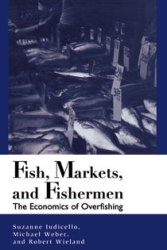
Suzanne Iudicello
Suzanne Iudicello is currently an independent consultant after serving for ten years with the Center for Marine Conservation (CMC), until 1997, as its Vice President for Programs and General Counsel. Before moving to Washington, D.C. to attend law school, she served as special assistant to the Alaska Commissioner of Fish and Game, a post that followed a 15-year career as a journalist. While working as an advocate to reduce the incidental catch of marine mammals, seabirds, turtles and non-target fish during fishing operations, she continued to work collaboratively with progressive leaders in the fishing community to find ways to reduce bycatch and tone down rhetoric on the topic. By reaching out and taking the risk of working together with fishermen, she created a breakthrough in the decades-long controversy over tuna-dolphin interactions in the Eastern Pacific Ocean. She also organized and conducted successful negotiations between fishers and conservationists in 1988 and 1993, resulting in amendments to the Marine Mammal Protection Act that have reduced incidental take of marine mammals in fishing operations. Iudicello is co-author of Fish, Markets and Fishermen and Fishing Grounds, published by Island Press, and A Seafood Lover's Almanac, published by the National Audubon Society, as well as numerous articles on fishery management and bycatch.


